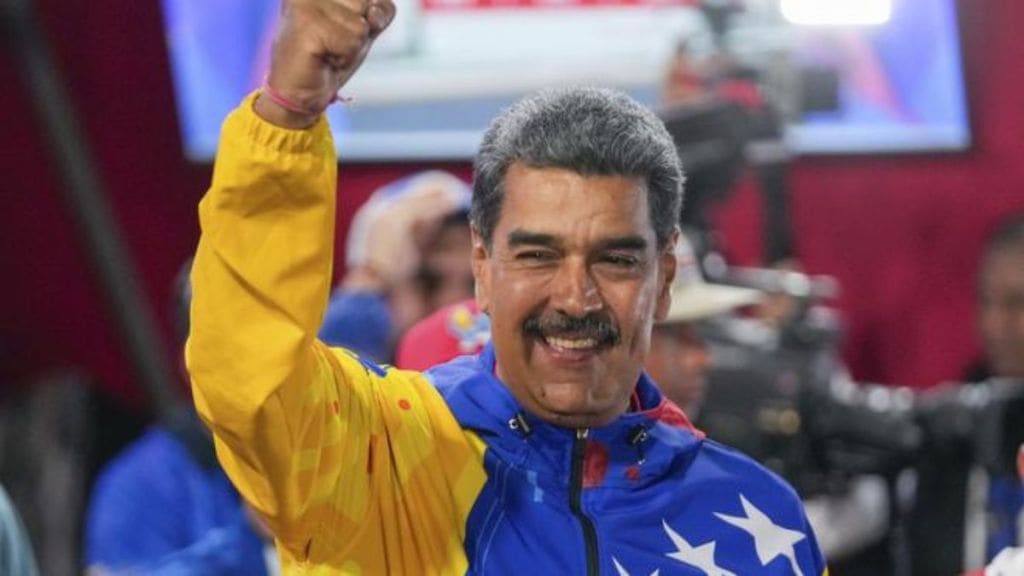By Dr Aprajita Kashyap
The Venezuelan presidential election scheduled for 28 July 2024 is a significant event with major domestic and international stakes. The election has been seen as a test of President Nicolás Maduro’s legitimacy. After controversial elections in the past, there is a significant push for free and fair elections. International observers and opposition parties closely watched to see if democratic norms were upheld. The traditionally fragmented opposition attempted to consolidate under a unified platform. The success or failure of this effort would have determined whether they can effectively challenge Maduro’s United Socialist Party of Venezuela (PSUV).
Venezuela has been grappling with a severe economic crisis characterised by hyperinflation, unemployment and a collapse of public services. Economic sanctions imposed by the United States and the European Union have heavily impacted Venezuela. The outcome of the election might influence future negotiations to ease these sanctions and open the door for economic relief and foreign investment. How the Venezuelan government manages its natural resources, particularly in the Amazon, will remain another significant concern. The election outcome will influence policies on environmental protection and resource exploitation. It would impact policies aimed at stabilising and revitalising the economy and determine how these critical sectors are managed.
A large number of Venezuelans have fled the country due to the ongoing crisis, leading to a significant refugee situation across Latin America. A change in leadership or policies could potentially affect migration trends and humanitarian assistance. Venezuela has faced numerous allegations of human rights abuses. The election will be pivotal in determining how these issues are addressed, including potential reforms and accountability measures. The government’s approach to civil liberties, including freedom of speech and political dissent, is under scrutiny.
Internationally, Venezuela has been afflicted with diplomatic isolation. Its relationship with countries like the United States, the European Union, and some Latin American nations has been strained. The election could reshape these diplomatic ties, depending on the policies of the elected government. Venezuela’s role in regional politics, especially concerning organizations like Prosur, Mercosur and ALBA, might be redefined based on the election results, impacting regional alliances and power dynamics.
The players who played critical roles in shaping the electoral landscape and addressing the pressing challenges facing Venezuela were Nicolás Maduro and Edmundo Gonzalez Urrutia. The incumbent President Maduro and his party PSUV (United Socialist Party of Venezuela) were aiming to maintain power, emphasizing continuity and resistance against foreign intervention. Maduro has been in power since 2013, succeeding Hugo Chávez. María Corina Machado has been a prominent and charismatic opposition leader. She is known for her staunch anti-Maduro stance and advocacy for democratic reforms. Machado was campaigning on a platform of radical change and emphasised the need for a complete overhaul of the current political system. She managed to coalesce most opposition supporters who were frustrated with the existing political stalemate. There is a direct correlation between the repression and her allure and appeal. She was disqualified and, in her place, Edmundo Gonzalez, a diplomat, was the face of the opposition.
International position on the elections, especially that of the US, is crucial. The US has called out for peaceful elections that will reflect the will and aspirations of the people and are free from any political repression and violence. The regional leadership from Brazil, Chile and Argentina has also expressed the desire to the Venezuelan government to ensure a peaceful election. Organisations like the Organization of American States (OAS) and the European Union may play pivotal roles in observing the electoral process to ensure transparency and fairness.
An early National Electoral Council release has declared Maduro as the winner of Venezuela’s presidential election. This is destined to be setting up a high-stakes showdown that will determine whether the South American nation transitions away from one-party rule. Maduro has secured 51 per cent of the vote, overcoming opposition candidate Edmundo González who garnered 44 per cent. A major challenge of the declaration of the result is whether the counting of votes has been fair to falsify the allegations by the opposition. Ensuring that a transparent and fair election with international oversight through observers was conducted is another significant task.
The 2024 Venezuelan elections are a crucial event with wide-ranging implications. It will shape the country’s political landscape, influence economic recovery efforts, impact human rights and civil liberties, and redefine Venezuela’s stakes at the international stage. Establishing trust in the electoral system among Venezuelans, about the Maduro victory, many of whom are sceptical due to past irregularities, would be critical for the credibility of the electoral institution. Domestic stakeholders and regional and global communities have been keenly observing the outcomes of the process and the result could have ramifications for internal polity and external relations.
The author is Faculty of Latin American Studies at CCUS&LAS, School of International Studies, JNU.


